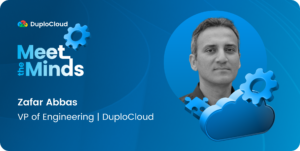Fully managed cloud infrastructure can let your developers focus on building your app, saving time, and boosting productivity
No matter how good a developer is, they only have so much bandwidth in a day. If their specialty is app development, forcing them to manage cloud infrastructure will likely cut into their efficiency and lead to costly mistakes.
That’s where Platform as a Service (PaaS) providers like Aptible come in. These solutions take infrastructure management off developers’ plates, letting them focus on what they do best. The result: shorter development timelines and simple, compliant scaling.
Aptible is a great service, but no solution can fit every business. This list of Aptible alternatives will help you find the right one for your organization.
What Is Aptible Used For?
As a PaaS provider, Aptible takes over the management and scaling of cloud infrastructure. That makes it fast and easy to deploy, especially as Aptible integrates with your existing CI/CD tools. It can also integrate with your existing performance monitoring tools or provide its own. The result is that developers spend more time building apps and less time wrangling containers.
Aptible’s two main focuses are scalability and security and compliance. Users can build out infrastructure on-demand, and a variety of Container Profiles help ensure they choose one optimized for their deployment. As their workloads grow, they can tap into bigger instances. Aptible makes that process much easier.
Aptible was created in 2013 with then-looming HIPAA compliance standards in mind. It’s since built out those features to address HITRUST Inheritance, streamlined SOC 2 compliance, and other standards. Protective measures include encryption, DDoS protection, vulnerability scanning, and multi-factor authentication. It also offers HIPAA Business Associate Agreements for clients in the healthcare sector.
One area in which Aptible has room to improve: documentation. Many customers have highlighted that not only is documentation difficult to find, but the information it contains is hard to parse. Without proper documentation, audits can slow to a crawl and employees can struggle to learn the nuances of your stack. Aptible is also one of the more expensive solutions on the market, especially as it starts to scale.
Pricing
Aptible offers four tiers of pricing, each of which includes a different number of resources as a baseline. Beyond that, customers can pay a per-hour rate for additional resources.
- Starter: No monthly fee, but limited resources at a per-hour rate.
- Growth: $185/month for 3GB of compute, 10GB database storage, and one endpoint, plus additional resources at a per-hour rate.
- Scale: $599/month for 10GB of compute, 100GB of database storage, and four endpoints, plus additional resources at a per-hour rate.
- Enterprise: Contact Aptible for details.
5 Aptible Alternatives
DuploCloud
DuploCloud is a low-code/no-code DevOps and DevSecOps platform with a plethora of CI/CD tools. At the core of its offerings is a leading automated cloud provisioning solution that can handle infrastructure scaling on its own, making it one of the best Aptible alternatives. That automation means fewer security vulnerabilities and human errors. When demand spikes, the infrastructure scales to match it without human input while efficient load balancing keeps the workload distribution even.
Security and compliance are two pillars of the DuploCloud platform. Built-in compliance management tools can help you bring your stack in line with PCI DSS, HIPAA, SOC 2, GDPR, and other standards. Your DuploCloud team will even monitor any relevant regulations for changes, proactively bringing the platform — and your infrastructure — into compliance. Extensive documentation helps expedite any audits, and a combination of advanced threat detection, response, and alerting keeps you ahead of any security challenges.
Unlike a PaaS, like Aptible, the DuploCloud platform does not limit you to a specific set of cloud services. You have full access to the entirety of services that your preferred cloud provider has to offer.
Pricing
DuploCloud uses nodes to measure out resources. Each node is the equivalent of one virtual machine, two serverless applications, or four functions. Here’s how each price tier affects the number of nodes and the features you get.
- DevOps Tier: $3,000 a month for the first 25 nodes. Includes automation services, app deployment, diagnostics, CI/CD, and baseline security controls.
- DevSecOps Tier: $4,500 a month for the first 50 nodes, plus everything in the DevOps Tier. Adds security and compliance controls, audit and reporting, and a customer-facing security white paper.
- DevSecOps PLUS Tier: $6,500 a month for the first 75 nodes, plus everything in the previous tiers. Adds cloud and/or on-premises installation and additional compliance standards.
- Enterprise: Contact sales for pricing.
Ready to learn how DuploCloud can benefit your business? Schedule a free demo today.

Heroku
If you’re looking for another Aptible alternative for smaller environments, Heroku is a great option. Its simple user interface allows you to oversee the PaaS environment it builds with smart containers, which it calls “dynos.” Heroku handles the infrastructure requirements for these isolated, virtualized Linux containers. That includes logging, security, failover, and orchestration.
On the user’s end, Heroku offers official support for Node.js, Ruby, Java, PHP, Python, Go, Scala, and Clojure. As if that weren’t enough, third-party buildpacks can enable the use of additional languages. All that code can be rolled back, as can data stored with Heroku. The platform also includes built-in monitoring and app metrics, plus constant delivery (CD) capability through Heroku Flow.
Although Heroku supports a lot of add-ons, they aren’t made by the company, and they don’t reach the same level of quality as the platform itself. That shows in some of their interfaces, which are often described as confusing. Heroku also imposes constraints on how applications can be built and deployed, which limits what developers can do with it. Finally, even if those problems don’t affect your team, price might. Past a certain threshold, dynos start to become fairly expensive.
Pricing
Heroku’s pricing is highly modular. That can make things somewhat confusing, but the company provides a robust price estimator to help you preview what your particular use case would cost. Here’s how the basic price tiers break down:
- Eco and Basic Tier: Starting at $5/month.
- Production Tier: Starting at $0.035/hour.
- Advanced Tier: Starting at $0.347/hour.
- Enterprise Tier: Contact the sales team for an estimate.
AWS Elastic Beanstalk
AWS Elastic Beanstalk is Amazon’s entry in the PaaS field. This managed service from one of the behemoths of the cloud takes infrastructure buildout and configuration off your hands. Scaling, load balancing, health monitoring, and capacity provisioning are all handled by Amazon. However, if you want to take manual control of your underlying infrastructure — say, to run a workload on a specific EC2 instance type — you can do so.
AWS Elastic Beanstalk supports Java, .NET, PHP, Node.js, Python, Ruby, Go and Docker. Users also describe it as among the easier-to-use Aptible alternatives, and its reliance on Amazon’s resilient infrastructure means your deployments benefit from AWS’s 99.999% uptime.
Pricing
AWS Elastic Beanstalk is free to use up to a certain resource threshold. Beyond that, you’ll have the option to pay for On-Demand Instances, commit to a Savings Plan, or sneak into Spot Instances according to your needs.
- On-Demand instances let you pay for compute capacity by the hour or second, with different instances charging different rates.
- Savings Plans let you save money on compute in exchange for committing to a consistent amount of usage over a one- or three-year term.
- Spot Instances let you tap into unused EC2 capacity in the AWS cloud at a steeply discounted rate, but should be reserved for fault tolerant or stateless workloads because they aren’t dependable.
AWS storage, meanwhile, starts at $0.023/GB/month for the first 1,024GB, then drops in price for subsequent TBs.
Amazon offers a price calculator to help you estimate costs.
Google App Engine
If you prefer Google’s ecosystem to Amazon’s, Google App Engine may be the Aptible alternative for you. It uses a fully managed serverless platform to let you build your app without worrying about infrastructure. If you still want some hands-on time, its Cloud Monitoring and Cloud Logging tools let you keep an eye on performance. Cloud Debugger can then help you find and fix bugs.
Google App Engine officially supports Node.js, Java, Ruby, Go, C#, Python, and PHP. It then extends its flexibility by supporting other languages through custom runtimes. It’s an incredibly powerful tool — and it has the price tag to match.
Pricing
- Free Tier: Includes 28 hours per day of F1 instances, nine hours per day of B1 instances, and 1GB of outbound data transfer per day. Can only be used for the Standard Environment, not the Flexible Environment.
- Beyond that, you’ll pay per hour, per instance, with different classes demanding different rates. Instance rates range from $0.0579/hour to $0.4632/hour.
Microsoft Azure App Service
Finally, we have Microsoft’s Azure App Service. This service’s automatic load balancing can keep your infrastructure working efficiently. The included Application Insights can then provide monitoring, logging, and diagnostics to help you dial in the rest of your variables.
Microsoft Azure App Service is a very flexible solution. It integrates with many of the most popular deployment tools, including GitHub, Bitbucket and, of course, Azure DevOps. Your apps can run in parallel on Windows, Linux, and MacOS; you can also develop for iOS and Android Apps. Supported languages include Node.js, Python, Java, PHP, Ruby, C/C++, and Microsoft.NET. And don’t worry, you can deploy to all the other major cloud platforms, including AWS and Google Cloud.
Pricing
Azure App Service is included in Azure’s free tier, but only in limited form. If you want more compute or storage, you’ll need to start paying an hourly rate for your usage. At higher spending tiers, you have two options to help you spend efficiently. The first is to commit to a fixed hourly amount as part of a one- or three-year savings plan. The second is to purchase a reserved instance for one or three years.
- Free Plan: 10 web, mobile, or API apps with 1GB storage 1 hour per day.
- Basic Plan: Pay-as-you-go starts at $0.075/hour for one core, 1.75GB of RAM, and 10GB of storage. Savings plans and reserved instances unavailable.
- Premium Plan: Pay-as-you-go starts at $0.210/hour for one core, 4GB of RAM, and 250GB of storage. Savings plans and reserved instances available.
- Enterprise Plan: Pay-as-you-go starts at $0.562/hour for two cores, 8GB RAM, and 1TB storage. Savings plans and reserved instances available.
Automate Your Infrastructure with DuploCloud
When you choose a PaaS provider, you’re essentially deciding which middleman you want between your work and AWS, Azure, or Google. That middleman can simplify your interfaces, but it’s going to cost you when you start to scale. It’s also going to limit what you can do.
If you want the same level of usability with no restrictions and a lower price, you need DuploCloud. Our platform makes it easy to provision and deploy a secure infrastructure with compliance guardrails without breaking the bank. Contact us today to find out how we can 10x your development speeds.



